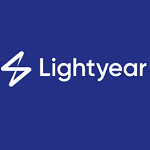Fractional shares allow you to invest a small amount of money in high-priced stocks. It is an ideal way for beginners to start investing in a diverse portfolio with only a small amount of money. In this guide, we will explain what fractional shares are, how they work and the pros and cons of using them to invest.
You can buy fractional shares through the newer bread for fintech investing apps that cater to smaller investors like eToro,and also more established traditional platforms like Interactive Brokers.
Fractional share ownership and trading are relatively new concepts and as such, they have not been adopted by every broker, notable incumbents like Hargreaves Lansdown, AJ Bell and Interactive Investor do not offer them.
It’s also worth noting that the list of securities that you trade using fractional share ownership, will usually be US-centric, although they are available on UK shares as well.
To trade in fractional shares you will need to open a share trading account with a broker that offers the service.
Here, we run through brokers that do and some that don’t below.
Interactive Brokers – best fractional share all-rounder
Interactive Brokers are one of the biggest online brokers and operate globally. They have offices and operations around the globe including an FCA-regulated business in London. Interactive Brokers offers fractional share trading and investing. The firm claims to offer fractional trading on more securities than any other broker, existing clients can simply enable fractional share trading on their account whilst new customers will need to apply for a share trading account with the firm.
eToro – good for US investing
eToro takes a slightly different approach to its peers and it allows fractional trading in all the instruments it offers to clients. However, the platform is very basic and not for serious investors.
IG – good for CFDs and spread betting
IG does not currently offer fractional share trading and investing services to its clients, but you can trade CFDs and spread bets which give you more control over position size.
Lightyear – good app for small investors
Lightyear – a new app founded by some of the original Wise employees. Costs are very low and market access is getting better everyday.
WideAlpha – good for fractional bonds
WiseAlpha – lets you buy fractions of bonds with high minimum trade sizes through their notes.
Revolut – good for part-time investors
Revolut is one of several disruptors in the payments and personal finance space. The company which made its name in payments processing and money transfers has expanded into trading and investing services including fractional share trading in a list of US stocks via its smartphone app, across all of its account categories.
Compare Fractional Share Platforms
| Investment Platform | Fractional Shares | Min Deposit | GMG Rating | More Info |
|---|---|---|---|---|
 | ✔️ | £1 | Visit Broker Capital at risk |
|
 | CFDs | £250 | Visit Broker Capital at risk |
|
 | ✔️ | $10 | Visit Broker Capital at risk |
|
 | CFDs | £1 | Visit Broker Capital at risk |
|
 | ✔️ | £1 | Visit Broker Capital at risk |
|
 | ✔️ | £1 | Visit Broker Capital at risk |
What are fractional shares and should you invest in them?
Fractional shares let you invest by choosing an amount of money to allocate to a stock, rather than by the number of shares you want to buy.
Traditionally stocks and shares have been traded in quantities that are whole numbers such as 1, 10 500, or 1000, for example.
That system worked perfectly well for decades but there were a few issues within it. Among them was the fact that retail traders were often excluded from being able to own high-priced stocks such as Amazon (one of the FAANG stocks), a stock that trades at around $131 per share.
If you have a $1,000 portfolio, then at best you could own seven shares in Amazon but of course, that would mean risk concentration or putting all your eggs in one basket.
Are fractional shares worth it?
Yes, fractional share ownership lets you reduce your risk by allowing investors and traders to own less than one share in a company, and therefore spread their money across more stocks.
For example using fractional share trading, as an investor you can buy a tenth of a share in Amazon. You still get exposure to the price performance of the stock but at a fraction of the cost or face value of the security and get a share in the company’s profits through fractional dividends.
It might be easiest to think of the concept of fractional trading as owning shares in a share.
One share of Amazon would cost an investor $131 plus commission, however, one-tenth of a share in Amazon would cost just $13.10 plus commission.
Can you hold fractional shares in an ISA?
You can how fractional shares in a stocks and shares ISA at the moment, but this may change and you could lose the tax benefits.
This is because fractional shares are not equities and they are considered a form of CFD or contract for difference, a derivative of the underlying instrument, rather than physical ownership. Even though normal CFDs are highly speculative products, and fractional shares are not leveraged they do expose the client to the counterparty risk of their broker.
This is particularly relevant as only actual investments (not derivatives) can be held in an ISA.
In Europe, the regulator (ESMA) as we reported earlier this year wants to treat fractional shares as a derivative rather than an investment. The FCA in the UK may follow this classification.
Currently, HMRC is going through a process to decide if fractional shares can be held in an ISA. If you already hold fractional shares in an ISA (Adam Dodds from Freetrade has been very vocal about this on social media recently) the downside is that you might not get tax relief on profits. But you will still get to keep your profits.
Industry Experts Told Us
“The key takeaway to fractionalised shares is not necessarily that people want to buy less than one share. It’s that they want to invest a fixed sum of money into certain shares, irrespective of the share price. E.g. they want to buy $2000 worth of Tesla.”Advantages of fractional shares
- Good for small investors: Retail investors to gain exposure to securities that they might otherwise not be able to afford or accommodate within their portfolio.
- Diversification: Fractional share trading and ownership also allow investors to balance their portfolios.
Disadvantages of fractional shares?
- Voting at AGMs: If you invest in or trade fractional shares you may be disfranchised from voting rights and corporate actions. Most brokers will try to make good on these items, however, this is likely to be at their discretion
- Non-transferable: Fractional shares cannot be transferred between brokers, as they are a form of CFD not a shareholding in the underlying company. So if you swap your current broker for another one you will almost certainly have to sell any fractional shares you have rather than transferring them to a new home.
- Less protection: We have also yet to see how fractional shareholders would be treated in the event of a default by a broker who offers these services, and where fractional shareholders would rank in the list of creditors in that event.
Fractional Share FAQs
Yes, fractional shareholders should receive a dividend entitlement pro-rata to their holdings. So if you own a tenth of a share that pays a $1.00 dividend as a fractional shareholder you should receive a tenth of that dividend i.e. 10 cents.
However, the dividend will be apportioned by your broker and not the underlying company and therefore the size of the distribution could vary.
Fractional shares are traded through a broker, but as we noted above they cannot be transferred between brokers. Investors, therefore, have to sell fractional shares through the broker that they purchased them from.
You can buy fractional shares on some of the most popular investments like Vanguard ETFs, Berkshire Hathaway, S&P 500 index trackers
The most popular fractional trading stocks tend to be those that have a high face value and in particular, those that are in tech and growth sectors.
Amazon is the classic fractional trading stock, alongside the likes of Alphabet, the parent company of Google. Other names that are often traded as fractional shares include Tesla, Netflix, Facebook, Microsoft and PayPal.
There are more than 150 stocks in the S&P 500 alone with share prices above $100 per share, pricing that makes it difficult for retail investors to own them, without using fractional trading.
Yes, you can make money with fractional shares in the same way as buying stocks normally. One of the key benefits is that you have a better chance of making money as you can buy a more diverse range of stocks if you are buying fractions of lots of company shares rather than allocating all your money to a single investment.
- Related guide: Is it worth buying a single share of Tesla?

With over 35 years of finance experience, Darren is a highly respected and knowledgeable industry expert. With an extensive career covering trading, sales, analytics and research, he has a vast knowledge covering every aspect of the financial markets.
During his career, Darren has acted for and advised major hedge funds and investment banks such as GLG, Thames River, Ruby Capital and CQS, Dresdner Kleinwort and HSBC.
In addition to the financial analysis and commentary he provides as an editor at GoodMoneyGuide.com, his work has been featured in publications including Fool.co.uk.
As well as extensive experience of writing financial commentary, he previously worked as a Market Research & Client Relationships Manager at Admiral Markets UK Ltd, before providing expert insights as a market analyst at Pepperstone.
Darren is an expert in areas like currency, CFDs, equities and derivatives and has authored over 260 guides on GoodMoneyGuide.com.
He has an aptitude for explaining trading concepts in a way that newcomers can understand, such as this guide to day trading Forex at Pepperstone.com
Darren has done interviews and analysis for companies like Queso, including an interview on technical trading levels.
A well known authority in the industry, he has provided interviews on Bloomberg (UK), CNBC (UK) Reuters (UK), Tiptv (UK), BNN (Canada) and Asharq Bloomberg Arabia.



